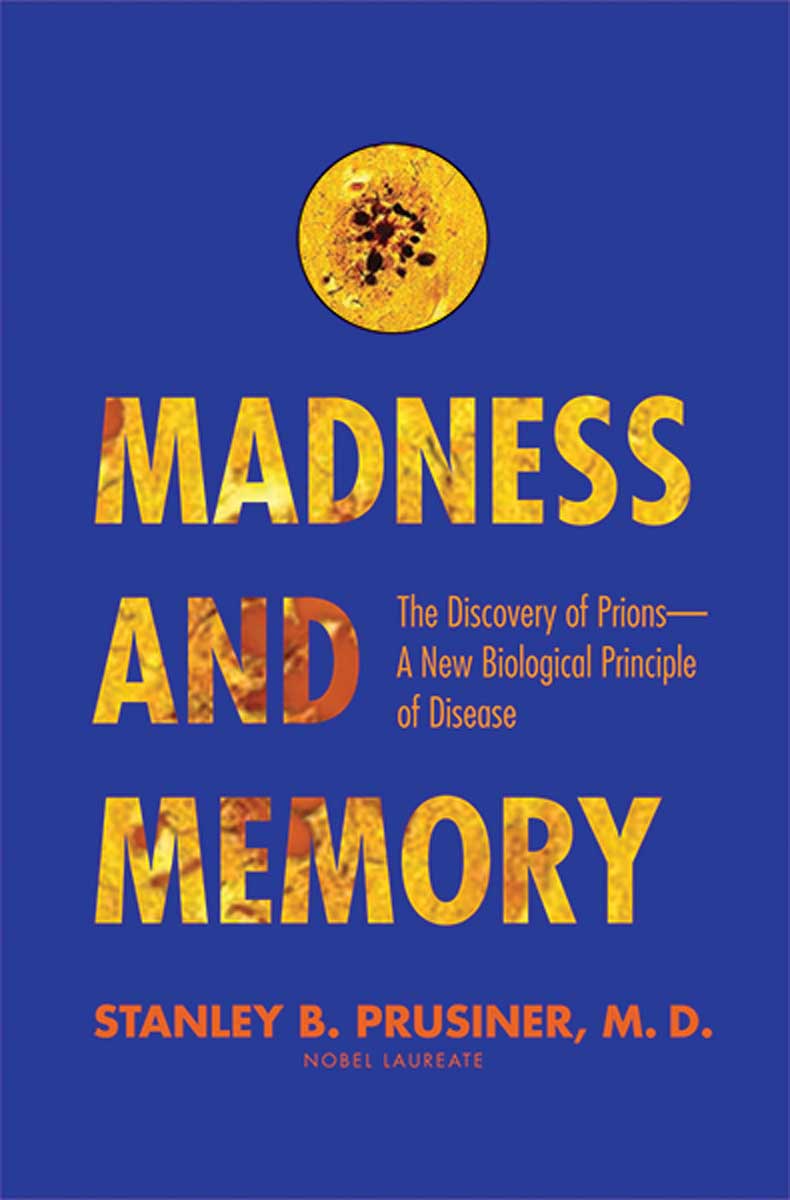ISBN: PB: 9780300216905
December 2015
320 pp.
23,4x15,6 cm
37 black&white illus.
PB:
£18.99
QTY:
Categories:
Madness and Memory
The Discovery of Prions - A New Biological Principle of Disease
In 1997, Stanley B. Prusiner received a Nobel Prize, the world's most prestigious award for achievement in physiology or medicine. That he was the sole recipient of the award for the year was entirely appropriate, for his struggle to identify the agent responsible for ravaging the brains of animals suffering from scrapie and mad cow disease, and of humans with Creutzfeldt-Jakob disease, had been waged largely alone and in some cases in the face of strenuous disagreement. In this book, Prusiner tells the remarkable story of his discovery of prions – infectious proteins that replicate and cause disease but surprisingly contain no genetic material – and reveals how superb and meticulous science is actually practised using talented teams of researchers who persevere. He recounts the frustrations and rewards of years of research and offers fascinating portraits of his peers as they raced to discover the causes of fatal brain diseases. Prusiner's hypothesis, once considered heresy, now stands as accepted science and the basis for developing diagnoses and eventual cures. He closes with a meditation on the legacy of his discovery: What will it take to cure Alzheimer's, Parkinson's, Lou Gehrig's and other devastating diseases of the brain?
About the author
Stanley Prusiner, M.D., is director of the Institute for Neurodegenerative Diseases and professor of neurology at the University of California, San Francisco. The recipient of an array of scientific honours, he was awarded the Nobel Prize in Physiology/Medicine in 1997. He lives in San Francisco.
Reviews
"Stanley Prusiner is a brilliant scientist whose boldness and tenacity enabled him, against all odds and despite near-universal skepticism, to discover and prove the importance of a new class of disease-producing agents – prions – a discovery as fundamental as that of bacteria and viruses. Prions, by subverting the brain's own proteins, may play a crucial role in Alzheimer's, Parkinson's, and other neurodegenerative diseases – and perhaps afford a clue to their prevention. Madness and Memory is the story of one of the most important discoveries in recent medical history, and it is also a vivid and compelling portrait of a life in science" – Oliver Sacks


